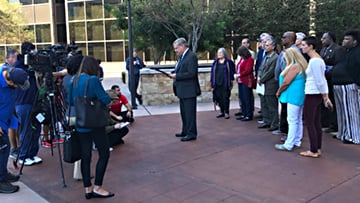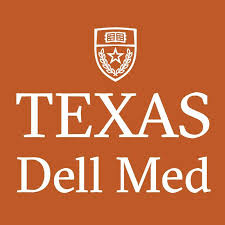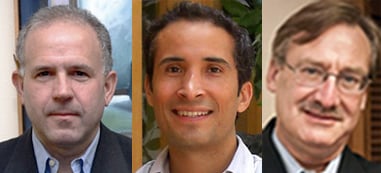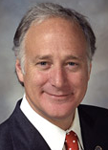Plaintiffs argue it is not legal to give $35 million a year to the UT Austin Dell Medical School
Part 4 in a Series
Updated Wednesday October 18, 2017 10:44am (to add Central Health’s Statement)
Updated Wednesday October 18, 2017 3:04pm to add press conference photo

Three Travis County taxpayers filed a lawsuit this morning against the Travis County Healthcare District, dba Central Heath, and its president and CEO Mike Geeslin, complaining that property tax funds are being used for purposes not authorized by the Texas Constitution and state statutes.
 If successful the litigation’s biggest impact would be to force Central Health, through its nonprofit Community Care Collaborative, to stop giving $35 million a year to the University of Texas at Austin Dell Medical School. That would make vastly more funds available to provide direct healthcare services available for indigent, uninsured, and underinsured residents of Travis County.
If successful the litigation’s biggest impact would be to force Central Health, through its nonprofit Community Care Collaborative, to stop giving $35 million a year to the University of Texas at Austin Dell Medical School. That would make vastly more funds available to provide direct healthcare services available for indigent, uninsured, and underinsured residents of Travis County.
Under an Affiliation Agreement, that yearly allocation has already yielded $105 million for the medical school through FY 2017 and the $35 million annual payments are scheduled continue in perpetuity. Stopping that flow of money would undermine the financial foundation upon which the medical school was built. In June 2012 the UT Board of Regents committed $25 million a year to operate the medical school and $5 million a year for eight years to equip laboratories, but made those funds contingent upon the community providing $35 million a year. Otherwise there would be no medical school.
The lawsuit petition tackles that premise head on: “The issue in this case is not whether it would be cool or wonderful to have a medical school in Austin (or whether defendants consider other goals cool or wonderful). This suit is necessary because defendants are not complying with Texas law and are expending funds on items unrelated to its statutory authorization of providing health care to our poor and vulnerable residents.”
A message was left for Mike Geeslin at 9:10am today requesting comment. A message was left for Ted Burton, Central Health’s senior director of communications, at 9:30am. Neither were able to immediately respond.
In a 10:28am email Burton sent a statement: “We are aware of the lawsuit. Our attorneys will review the lawsuit and respond at the appropriate time in the appropriate venue. We look forward to finally resolving this issue even if it means doing so in court.
“Based on the press release we received, it would appear the claims in the lawsuit are nothing new. They won’t deter Central Health from its mission of providing access to high quality to (sic) care for Travis County residents of low income.” (The full text of the email is linked below.)

The plaintiffs are Rebecca Birch and Richard Franklin III, a married couple who live in far eastern Travis County, and Esther Govea, who lives in South Austin. All three are property taxpayers in Travis County according to the lawsuit and therefore help to fund Central Health through the taxes it levies.
Birch, president of the Del Valle ISD Board of Trustees, and Franklin, a former Del Valle ISD trustee, have both been highly visible and vocal critics of Central Health. Those have voiced concerns to the Central Health Board of Managers and the Travis County Commissioners Court, spoken at a public input meeting held in connection with Central Health’s Performance Review currently underway, and at press conferences. Their chief complaint was the lack of services across large areas of eastern Travis County that have no healthcare services, a problem that Central Health has recently begun to address.
A press conference was scheduled for 11am today at 700 Lavaca, the building where the Commissioners Court meets.
The plaintiffs seek declaratory and injunctive relief, attorney’s fees, expenses, and court costs. They are not asking for monetary damages.
Plaintiffs’ attorneys

The plaintiffs are represented by attorneys Philip “Phil” Durst and Manuel Quinto-Pozos of Austin-based Deats Durst & Owen PLLC, along with attorney Fred Lewis, who for years has been criticizing Central Health’s spending.
Durst told The Austin Bulldog that if the lawsuit is successful, the court “would order Central Health to stop spending money inconsistent with poor people’s healthcare. If the medical school has a clinic for poor people, they could spend money on that. But they can’t spend it on the dean’s suite and other things not related to people people’s healthcare.”
The lawsuit comes a day after the Travis County Commissioners Court voted 3-2 to approve new financial policies that Central Health will use in FY 2018, policies that Lewis has called “pointless.”
Travis County Judge Sarah Eckhardt at the September 19, 2017, meeting of the Commissioners Court, in a sense may have invited this lawsuit. During a discussion of the proposed financial policies, one version of which was drafted by Lewis to require compliance with statutes, Eckhardt said, “I’m trying to get us out of financial legalities. These things are decided by a civil court—not the commissioners court.”
“I never agreed with that statement,” Lewis told The Austin Bulldog. “The Commissioners Court could’ve exercised oversight of Central Health and the Central Health board could have. This lawsuit is a last resort because they’re not listening. They have power to do things, they just don’t seem to want to.”
Did ballot language legitimize spending?
One issue that seems certain to be litigated is whether the ballot language approved by voters November 6, 2012, provides a legal basis for skirting the limitations imposed by the Texas Constitution and state statutes.
In addition to allowing Central Health to raise its tax rate by $0.05 per $100 property valuation—which voters approved by 54.72 percent to 45.28 percent—the ballot stated:
“…funds will be used for improved healthcare in Travis County, including support for a new medical school consistent with the mission of Central Health, a site for a new teaching hospital, traumaservices, specialty medicine such as cancer care,community-wide health clinics, training for physicians, nurses and other healthcare professionals, primary care, behavioral and mental healthcare, prevention andwellness programs, and/or to obtain federal matching funds for healthcare services.”
Asked about the ballot language, Durst said, “I think that the Constitution and statutes that strictly limit what Central Health can do has more bearing than the ballot language. I don’t think ballot language means they can spend on anything they want to involving the medical school and inconsistent with Central Health’s mission.”
What is Central Health’s mission?
The agency’s home page provides a feel-good statement: “Our Mission: By caring for those who need it most, Central Health improves the health of our community.”
The Texas Constitution, Article 9, Section 4, authorizes creation of county-wide hospital districts in counties having a population of in excess of 190,000 and provides for the broad powers such districts enjoy, “provided that such Hospital District shall assume full responsibility for providing medical and hospital care to needy inhabitants of the county.” (By statute, a healthcare district is technically a hospital district.)
The state statutes are far more specific.
Health and Safety Code Chapter 61, the Indigent Health Care and Treatment Act, in Sections 61.055 and 61.028 sets forth the basic hospital services that hospital districts “shall endeavor to provide.” These include:
(1) Primary and preventative services to include immunizations, medical screening, and annual physical examination;
(2) inpatient and outpatient hospital services;
(3) rural health clinics;
(4) laboratory and X-ray services;
(5) family planning services;
(6) physician services;
(7) payment for not more than three prescription drugs a month; and
(8) skilled nursing facility services, regardless of a patient’s age.
Section 61.0285 lists optional healthcare services that may also be provided if determined to be cost-effective.
Health and Safety Code Section 281.046 states that, “Beginning on the date on which taxes are collected for the district, the district assumes full responsibility for furnishing medical and hospital care for indigent and needy persons residing in the district.”
Neither the Texas Constitution nor these statutes appear to authorize spending for medical education, training, or paying the voluminous personnel costs of the medical school.
An analysis of public information obtained by Fred Lewis indicated that 83.6 percent of compensation costs for the medical school are paid with Central Health funds, while less than $3 million could be identified as having been spent on anything related to healthcare.
Legislative history led to ballot language

2003: Senate Bill 1905—In the 2003 legislative session State Senators Gonzalo Barrientos (D-Austin) and Jeff Wentworth (R-San Antonio) authored Senate Bill 1905 to provide the statutory authority for establishing the Travis County Healthcare District, which later became known as Central Health. Although SB 1905 failed to pass in the 2003 session, Wentworth’s amendment to House Bill 2292 was accepted and details of SB 1905 were made part of that larger bill, which passed.
Via a proposition on the May 15, 2004, ballot, 54.73 percent of voters approved creation of the Travis County Hospital District. Money and assets, including ownership of Brackenridge Hospital, was subsequently transferred to Central Health by the City of Austin and Travis County. The property tax rate levied by those two agencies was reduced accordingly and Central Health levied its own property taxes going forward.

2007: Senate Bill 1107—Senator Kirk Watson (D-Austin) authored this legislation that was sponsored in the House by State Representative Elliott Naishtat (D-Austin). The legislation was enacted and made effective September 1, 2007.
It provided the authority to, among other things, make a capital or other financial contribution to a charitable organization that is formed to provide regional administration and delivery of healthcare services. This provision enabled establishment and Central Health funding of the Community Care Collaborative, the 501(c)(3) nonprofit approved by the IRS in 2015 that actually disburses $35 million a year to the medical school.
SB 1107 also gave Central Health authority to affiliate with any public or private entity to provide regional healthcare services for the indigent, and hold an election to seek voter approval to raise the tax rate that would result in the tax rate exceeding the rollback rate.
2011: Senate Bill 821—Senator Watson authored SB 821. It’s purpose was to authorize Central Health to make a capital or other financial contribution to “a public institution or a charitable organization for the support of medical, dental, or clinical education, training, or research occurring within the district for the purpose of delivery of health care services to or for the district” so long as the funds were not used to provide abortion services.
SB 821 was passed by the Senate April 14, 2011, and sent to the House where it died without ever coming to a vote.
SB 1107 set the stage for the November 6, 2012, election in which Travis County voters approved a tax hike and ballot language that, if taken at face value, appeared to authorize Central Health to fund medical education through the University of Texas in accordance with an Affiliation Agreement that was executed July 10, 2014.
Whether that ballot language will withstand court scrutiny is at the heart of this litigation.
A clue to that question is contained in the Affiliation Agreement itself.
The Affiliation Agreement, in the last Whereas on Page 5, states:
“Central Health wishes to use the creation of the CCC (Community Care Collaborative) as a mechanism to provide the $35 million annual funding support to UT for the UT Austin Dell Medical School; provided, however, should CCC cease to be the mechanism for annual funding support to UT Austin Dell Medical School, the responsibility of Central Health to provide $35 million in annual funding support for the UT Austin Dell Medical School from Central Health tax revenues or other sources or mechanisms available to Central Health will continue to the extent permitted by the Constitution and Laws of the State;” (Italics added for emphasis.)
On its face this might be taken to say that it might not have been legal for Central Health to directly fund the UT Austin Dell Medical School, that the Community Care Collaborative was created as a way to skirt the Texas Constitution and state statutes and funnel money to the medical school.
Does the Community Care Collaborative shield Central Health from an alleged illegal use of taxpayer funds? That’s one of the questions this lawsuit will decide.
This story was updated at 2:49pm July 26, 2022, to correct information about the specific enabling legislation that allowed for an election to be held for the creation of the Travis County Hospital District, aka, Central Health.
This report was made possible by contributions to The Austin Bulldog, which operates as a 501(c)(3) nonprofit for investigative reporting in the public interest. You can help support this independent coverage by making a tax-deductible contribution.
Related Bulldog coverage:
Critic: Proposed Financial Policies “’Pointless’: Commissioners Court will vote tomorrow on Central Health financial policies for FY 18, Part 3 in a Series, October 9, 2017
Central Health Financial Policies Hotly Debated: $185 million given to Dell Medical School and Seton, with little to show for indigent healthcare, and $55 million more is on the way for FY 2018, Part 2 in a Series, September 29, 2017
Central Health Feedback Meetings Ill-Attended: Two public forums to gather opinions about the agency drew just nine speakers, Part 1 in a Series, August 27, 2017
Links:
Affiliation Agreement of the University of Texas at Austin, Central Health, and Community Care Collaborative, July 10, 2014
Central Health Statement of October 18, 2017 (received at 10:28am)
Plaintiff’s Original Petition in Birch et al v Travis County Healthcare District e-filed October 18, 2017 (7 pages)
Comments are welcome: If you would like to post your reaction to this story, please do so on The Austin Bulldog’s Facebook page.







